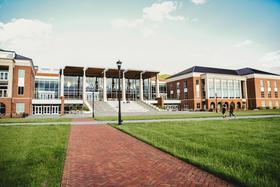Disturbingly low standards at community colleges nationwide translate to lower chances of success in the job market after college, a new study finds. Researchers discovered that although community college instructors appear to be lowering the bar for first-year students, many were unable to even meet the lower academic standards in math and literacy. This dismal picture suggests multiple layers of reform may be necessary to ensure students are ready for the professional workforce at graduation time.
Report Gauges College and Career Readiness
The new report, titled, “What does it Really Mean to be College and Work Ready?” was compiled by the National Center on Education and the Economy. The non-profit groups studies academic standards, instructional systems and assessment. Researchers looked at seven community colleges in seven states, looking at tests, textbooks and assignments given to first-year college students. Colleges were chosen at random and school size ranged from 3,000 to 30,000 students, according to Inside Higher Ed.
The study focused on popular career training programs offered by community colleges across the country, including accounting and business, automotive technology, criminal justice, early childhood education and information technology. Researchers focused on first-year students in these programs, and focus was placed on reading, writing and mathematics skills necessary to master these early college courses.
Lower Standards Still Not Met by Many Students
Researchers discovered that the bar set by college instructors in first-year courses was fairly low in terms of both reading and writing expectations. However, Education Week reports that many students are unable to even meet those lower standards, and college instructors often adjust coursework to match the students’ abilities and skill levels. For example, many community college professors rely on Power Point presentations to highlight key concepts in a lesson, rather than having students read textbooks at the 11th or 12th grade reading level.
Writing is rarely expected of first-year community college students, with most assessments given in a multiple choice format, rather than requiring essay answers. When students are asked to write for a course, instructors set a low standard for grammar usage, writing clarity, and the ability to make a logical argument on a specific position. These standards will not fly in the job market, researchers warn, but the remedy for the problem may be more complex than simply raising the bar on college curriculum.
Mathematics Quandary Requires Major Overhaul
In addition to the issues with reading and writing, researchers in the study found some major problems with the structure of math courses at community colleges. According to McClatchy, many students entering community college are placed into remedial math classes to bring them up to speed before they take college-level courses. The problem is that the math students are preparing for is rarely needed for the career tracks they choose.
Students who are sent to remedial classes in community college must pay for the courses, even though the credits earned do not count toward their degree program. The additional expense and time puts many community college students at a serious disadvantage, with few who start in remedial courses making it all the way to earning a degree. If the remedial classes are proving unnecessary to a student’s degree program, the choice of placing students in these courses becomes even more problematic.
“We concluded that even though the first year of community college doesn’t require any Algebra II, many kids are being kept out of community college programs because they haven’t taken that math in high school and don’t know it. And that seems to us very unfair,” Marc Tucker, president of the National Center on Education and the Economy, told McClatchy.
Instead of worrying about preparation for Algebra and beyond, community colleges should ensure students have a solid foundation in middle school math, including statistics, probability and basic arithmetic, the report states. The report calls the math discrepancy “a very serious problem” that can disrupt completion rates and keep students from moving into higher paying jobs after college.
The Deeper Problem
Even if community colleges realign their standards to better prepare students for the workforce, that move would solve only a portion of the problem. Researchers note in the report that even when community colleges lower the bar for first-year students, many students are still not able to perform to those standards. This suggests the preparedness problem can be traced back to the high school years, when students are not adequately prepared for the rigors of college coursework.
Community College Spotlight notes the following conclusion in the report:
We need to bear in mind that a very large fraction of high school graduates does not meet the very low expectations that community colleges currently have of them. The nation may have to learn to walk before it runs, which means that it is important, first, to enable our high school students to meet the current very low standards before we ratchet these standards up.
Researchers did acknowledge that the new Common Core Standards, which have recently been introduced in states across the country, could help to better prepare students for rigorous college coursework. However, the standards must be implemented well to be effective. Of course, that opens up a whole new can of worms as far as the general state of education in the United States today.
In the meantime, community colleges will continue to be a focus of academic performance, even as they have become a centerpiece for career preparedness today. As researchers and educators continue to explore the problems and possible solutions in the education system, more reform may be on the way.















